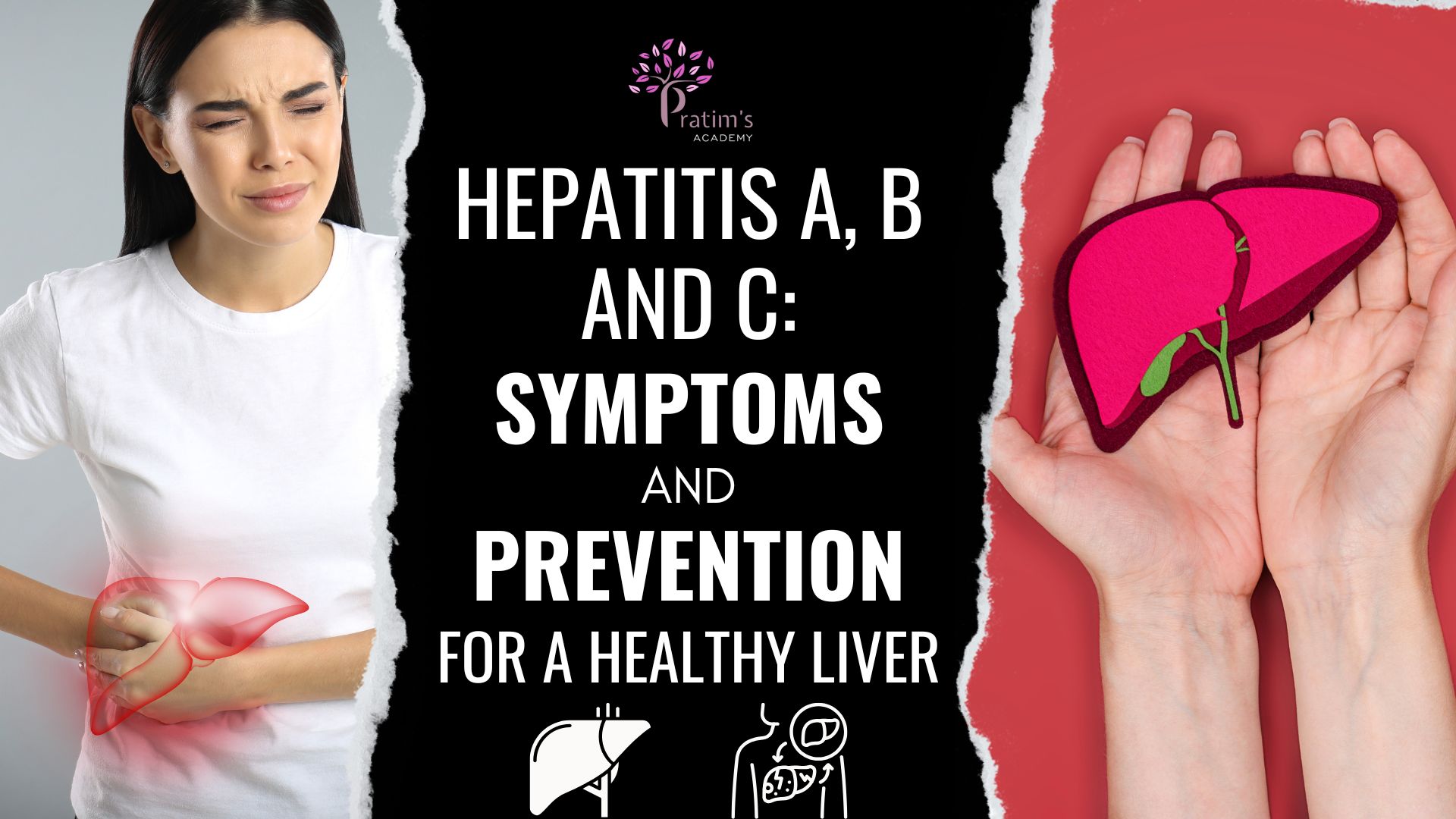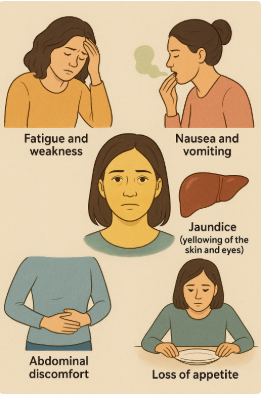Hepatitis A, B, and C: Symptoms and Prevention for a Healthy Liver
The liver is one of the body’s most vital organs — responsible for detoxifying harmful substances, storing nutrients, and aiding digestion. When the liver becomes inflamed due to infection or toxins, its ability to perform these crucial functions declines. One of the most common causes of liver inflammation is hepatitis, a condition often triggered by viral infections.
Understanding Hepatitis A, B, and C, their symptoms, and how to prevent them is essential for protecting your liver and overall health.
What Is Hepatitis?
Hepatitis refers to inflammation of the liver. While it can result from excessive alcohol use, certain medications, or autoimmune diseases, viral hepatitis remains the most widespread form. There are five main types of viral hepatitis — A, B, C, D, and E — each caused by a different virus and spread through distinct routes.
- Hepatitis A (HAV): A highly contagious virus transmitted through contaminated food, water, or close personal contact.
- Hepatitis B (HBV): Spread through contact with infected body fluids such as blood, semen, or vaginal secretions.
- Hepatitis C (HCV): Typically spread through blood-to-blood contact, such as sharing needles or receiving contaminated blood transfusions.
- Hepatitis D (HDV): Occurs only in individuals already infected with Hepatitis B.
- Hepatitis E (HEV): Transmitted mainly through contaminated food or water, more common in areas with poor sanitation.
This blog focuses on Hepatitis A, B, and C, the most common types affecting people worldwide.
Hepatitis A: Symptoms and Prevention
Hepatitis A is an acute liver infection that doesn’t usually cause long-term damage but can lead to serious illness in some cases. It spreads easily through contaminated food or water and is common in areas with inadequate sanitation.
Common Symptoms:
- Fatigue and weakness
- Nausea and vomiting
- Abdominal discomfort
- Loss of appetite
- Jaundice (yellowing of the skin and eyes)
Prevention Tips:
- Wash hands thoroughly before eating or after using the bathroom.
- Drink clean, filtered, or boiled water.
- Avoid consuming street food or raw shellfish in high-risk areas.
- Get vaccinated against Hepatitis A for long-term protection.
Hepatitis B: Symptoms and Prevention
Hepatitis B is a more serious viral infection that can become chronic and lead to complications such as liver cirrhosis or cancer. It spreads through infected blood or bodily fluids, often via unprotected sex, needle sharing, or from mother to child during childbirth.
Common Symptoms:
- Fatigue and weakness
- Abdominal pain
- Loss of appetite
- Dark urine
- Jaundice
- Joint or muscle pain
Prevention Tips:
- Get vaccinated against Hepatitis B — it’s safe and highly effective.
- Practice safe sex by using barrier protection.
- Avoid sharing needles, razors, or toothbrushes.
- Ensure all medical or tattoo equipment is properly sterilised.
Hepatitis C: Symptoms and Prevention
Hepatitis C primarily spreads through exposure to infected blood. Many people don’t experience symptoms for years, which is why it’s often called a “silent infection.” Chronic Hepatitis C can severely damage the liver if left untreated.
Common Symptoms:
- Often asymptomatic in early stages
- Persistent fatigue
- Loss of appetite
- Abdominal pain
- Jaundice (in advanced stages)
Prevention Tips:
- Do not share needles, syringes, or personal care items like razors.
- Practice safe sex, especially if you have multiple partners.
- Make sure all medical and dental procedures use sterile instruments.
- Get tested regularly if you are at risk — early detection allows timely treatment.
General Liver Protection and Prevention Strategies
Regardless of the type, protecting your liver from hepatitis starts with awareness and preventive care:
- Vaccination: Get vaccinated for Hepatitis A and B.
- Hygiene: Maintain proper hand hygiene, especially before eating.
- Safe Practices: Avoid sharing personal or medical equipment that can carry blood.
- Safe Sex: Always use protection to reduce transmission risk.
- Healthy Lifestyle: Limit alcohol intake and maintain a balanced diet to support liver health.
Key Takeaway
Hepatitis A, B, and C may differ in how they spread and progress, but they share one common truth — they can all be prevented. Vaccination, safe hygiene, and responsible habits are your best defense. Regular medical check-ups and early testing can help detect infection early and protect your liver for life.







